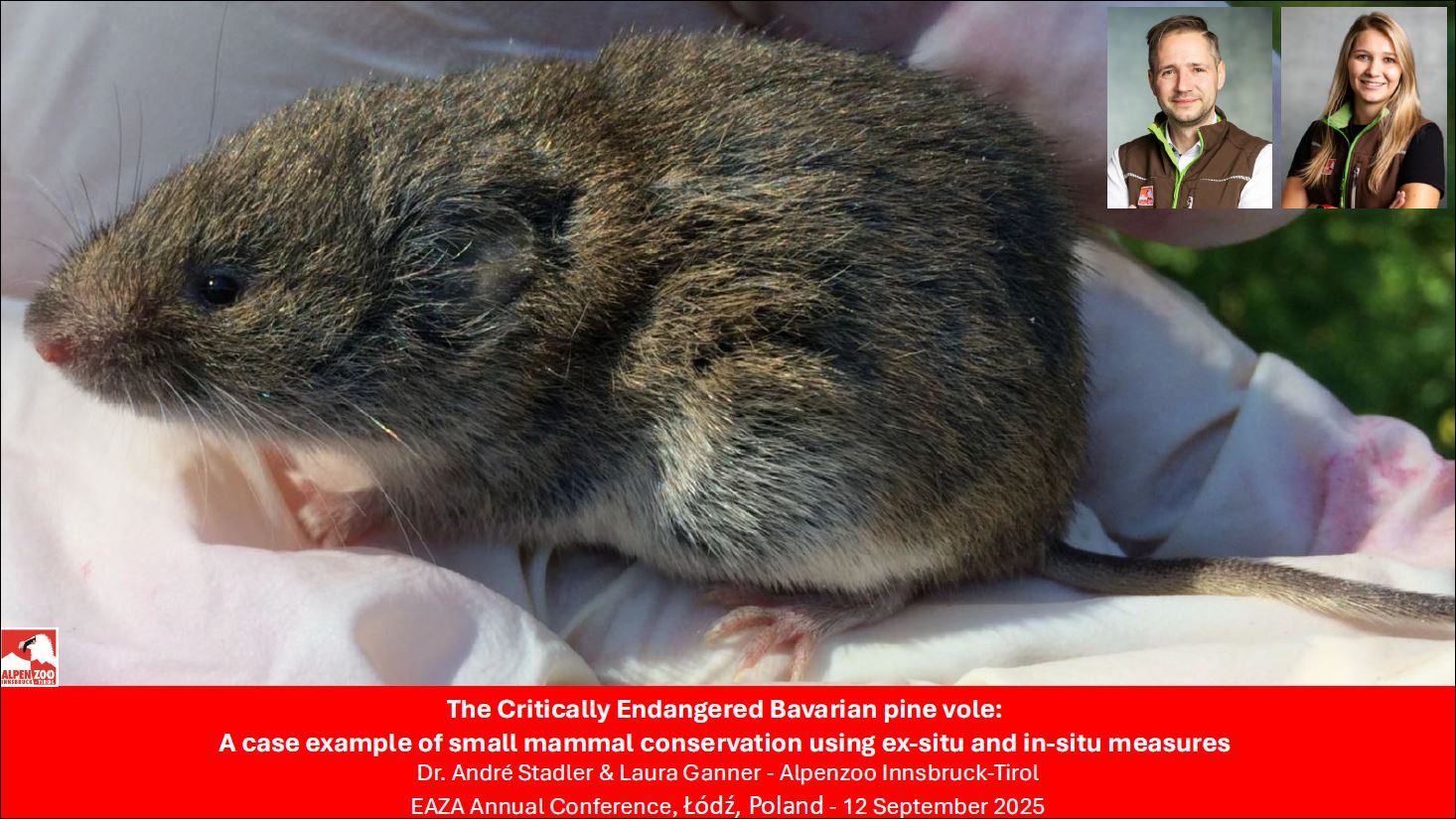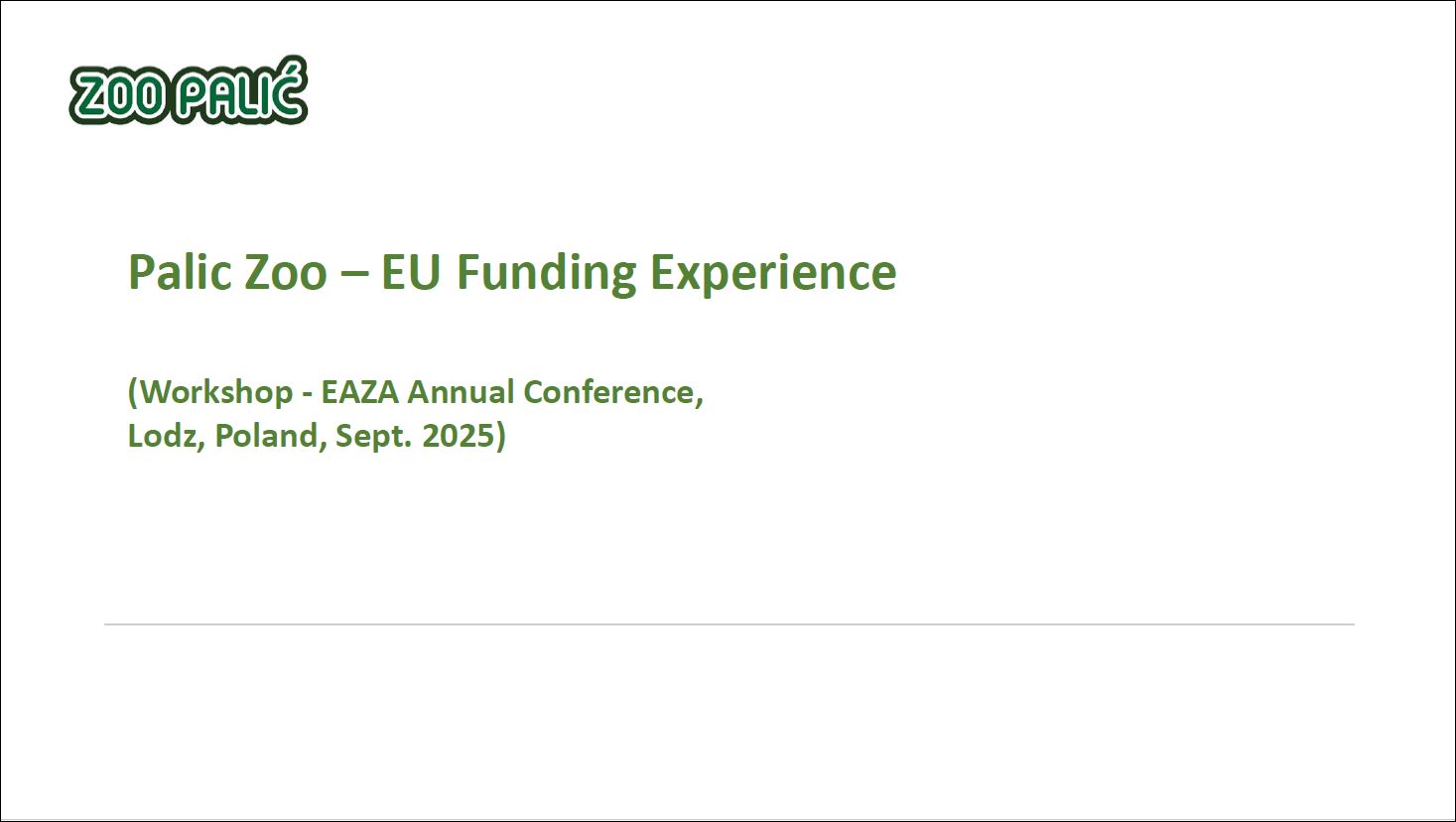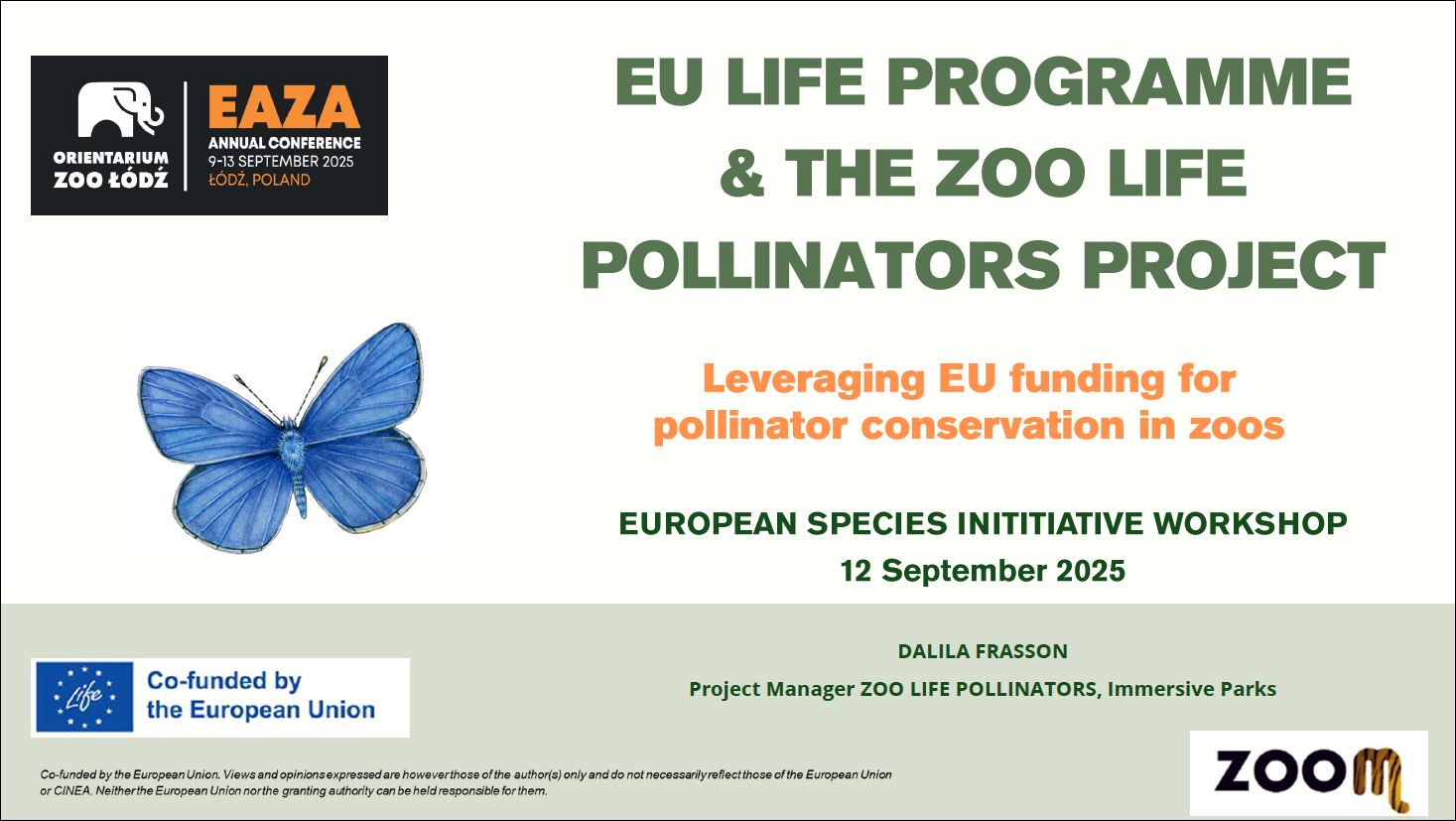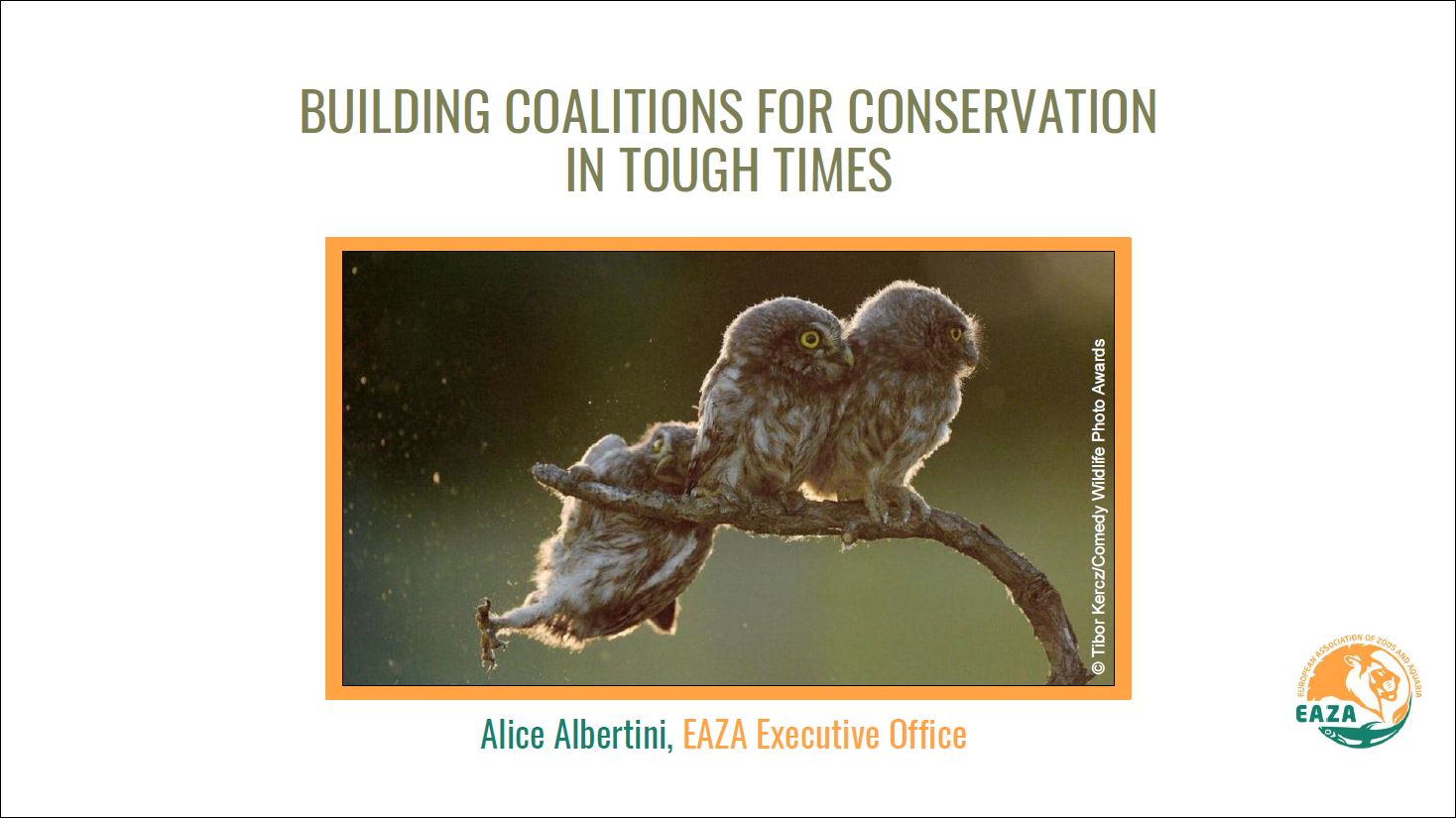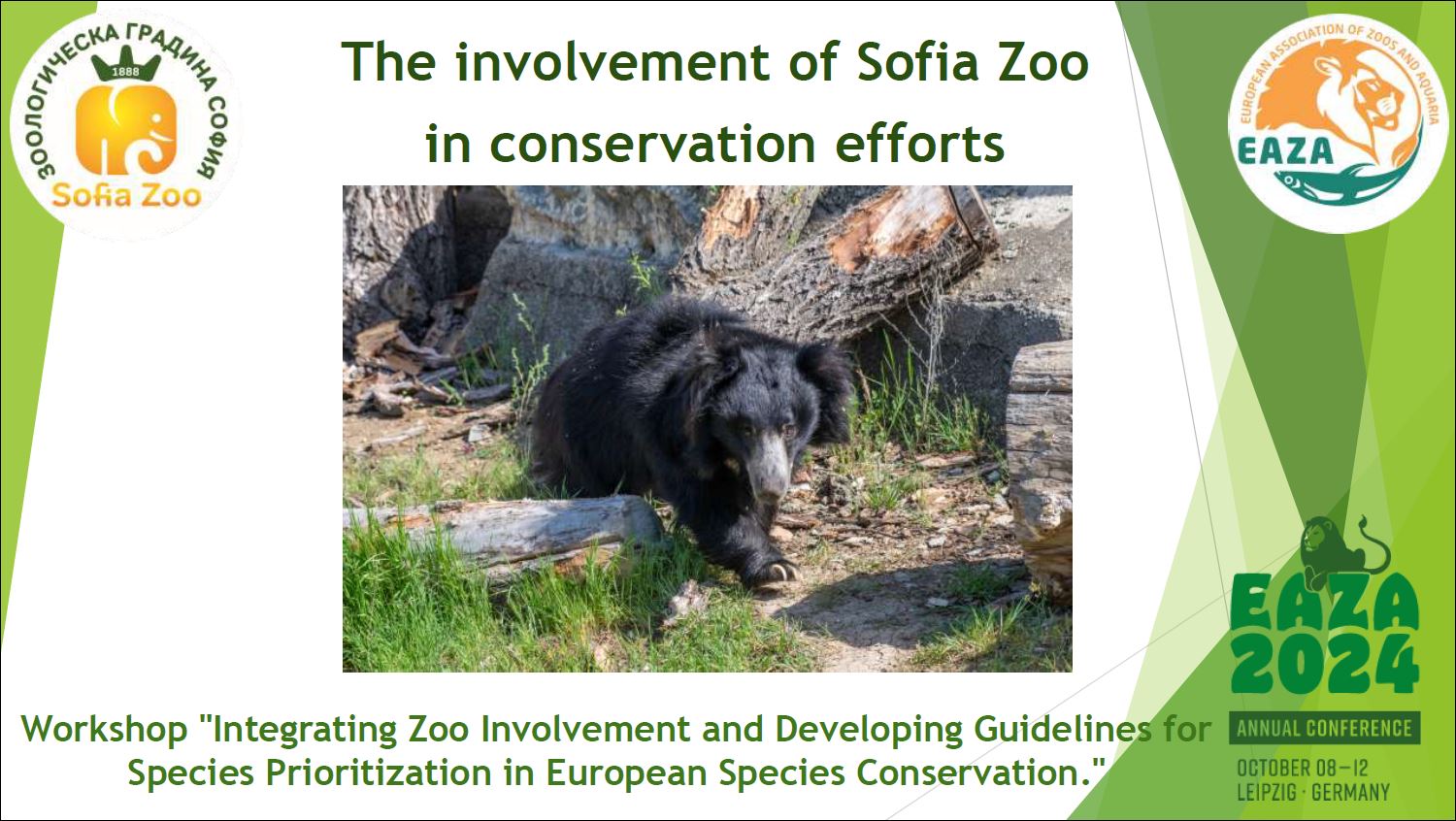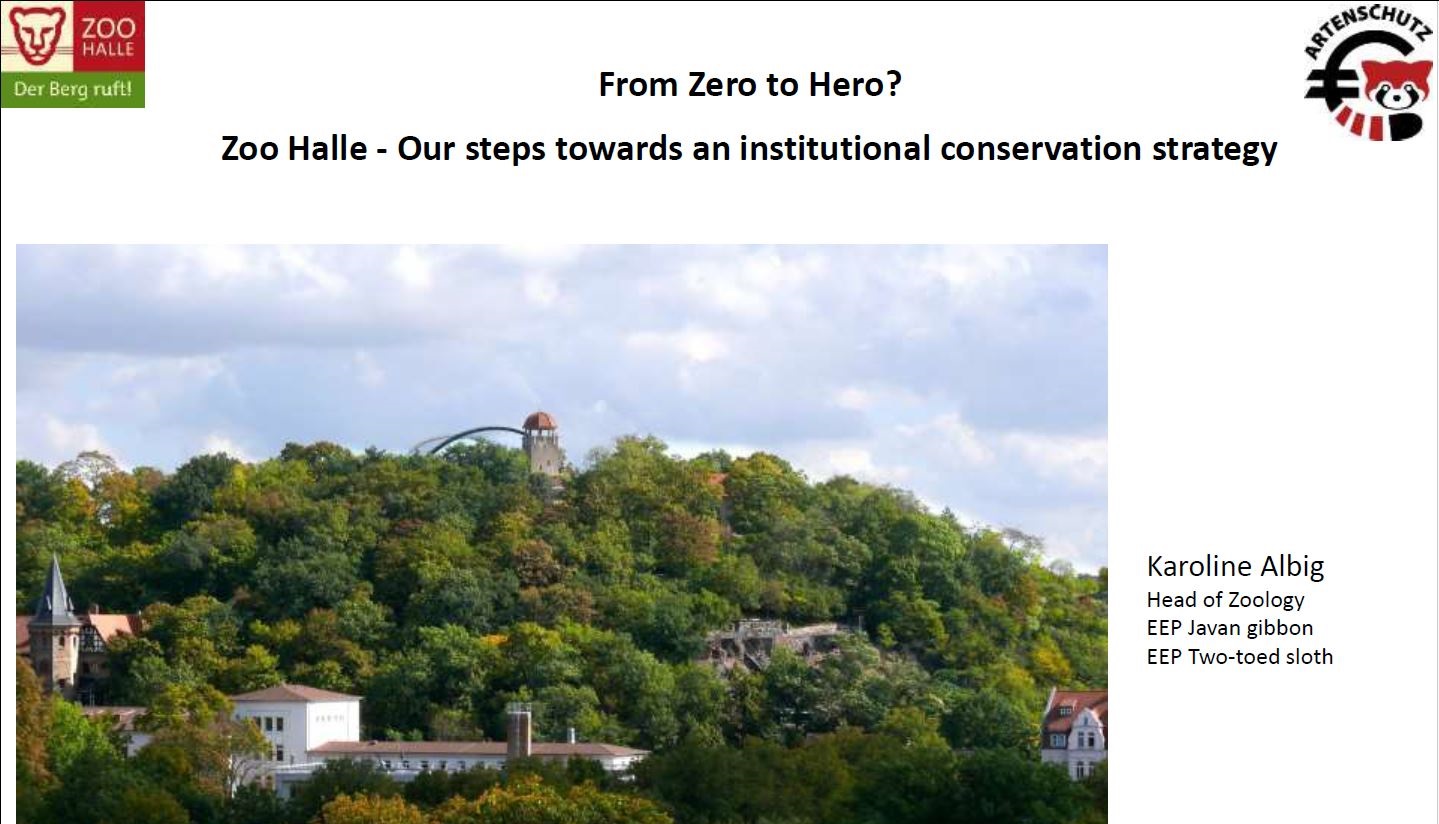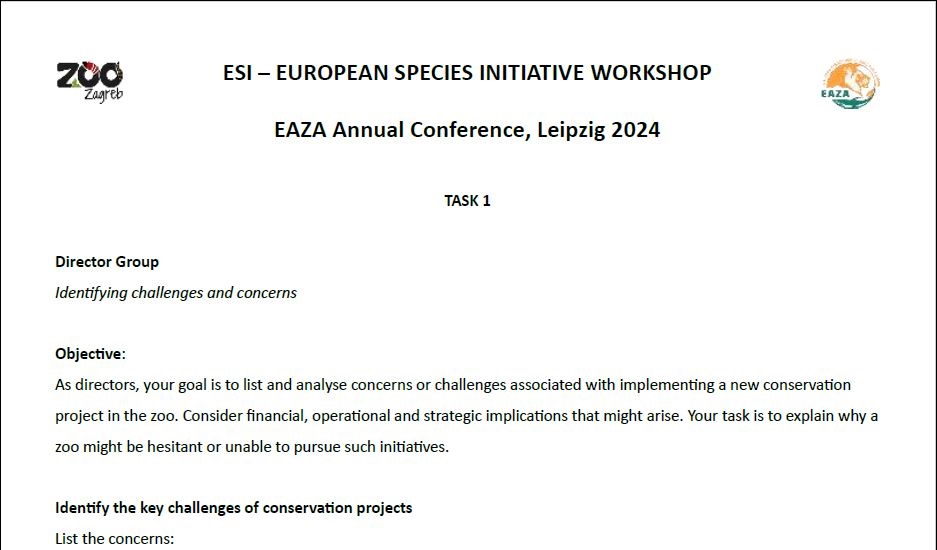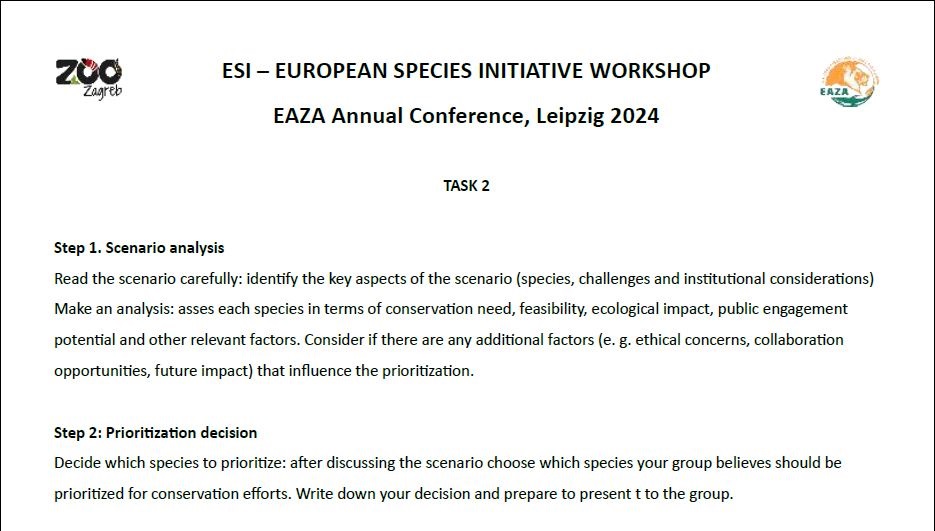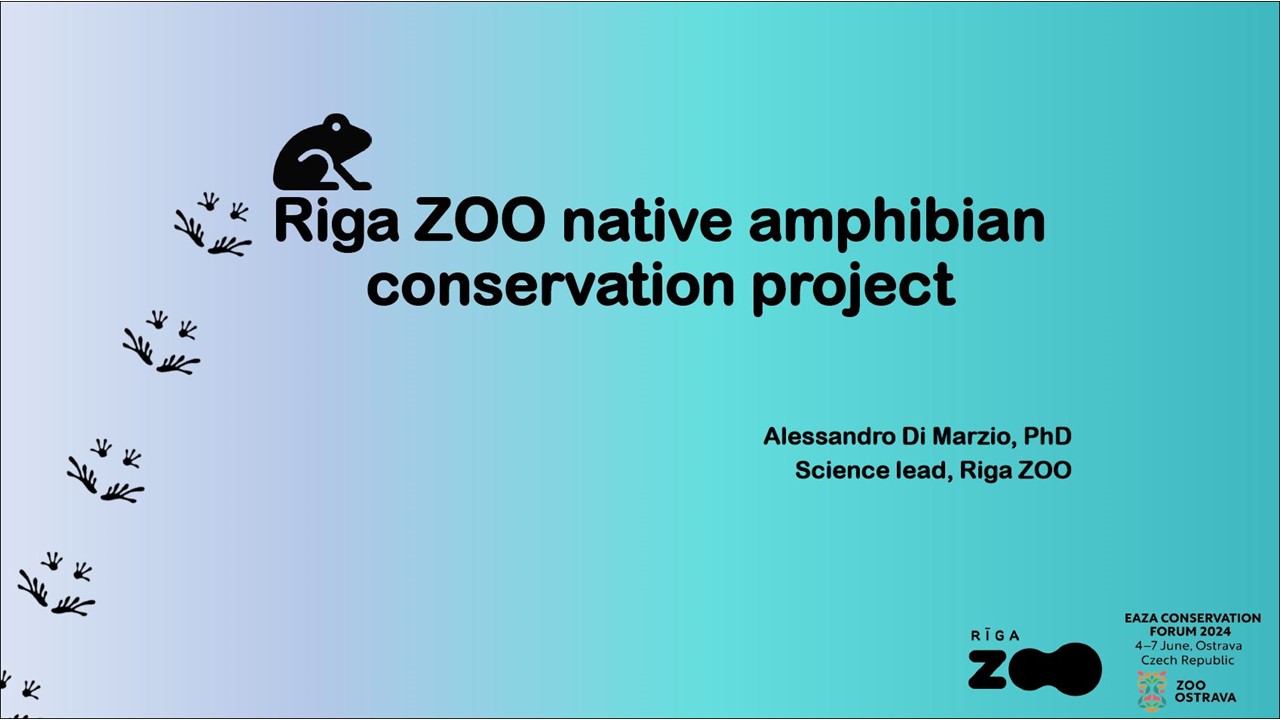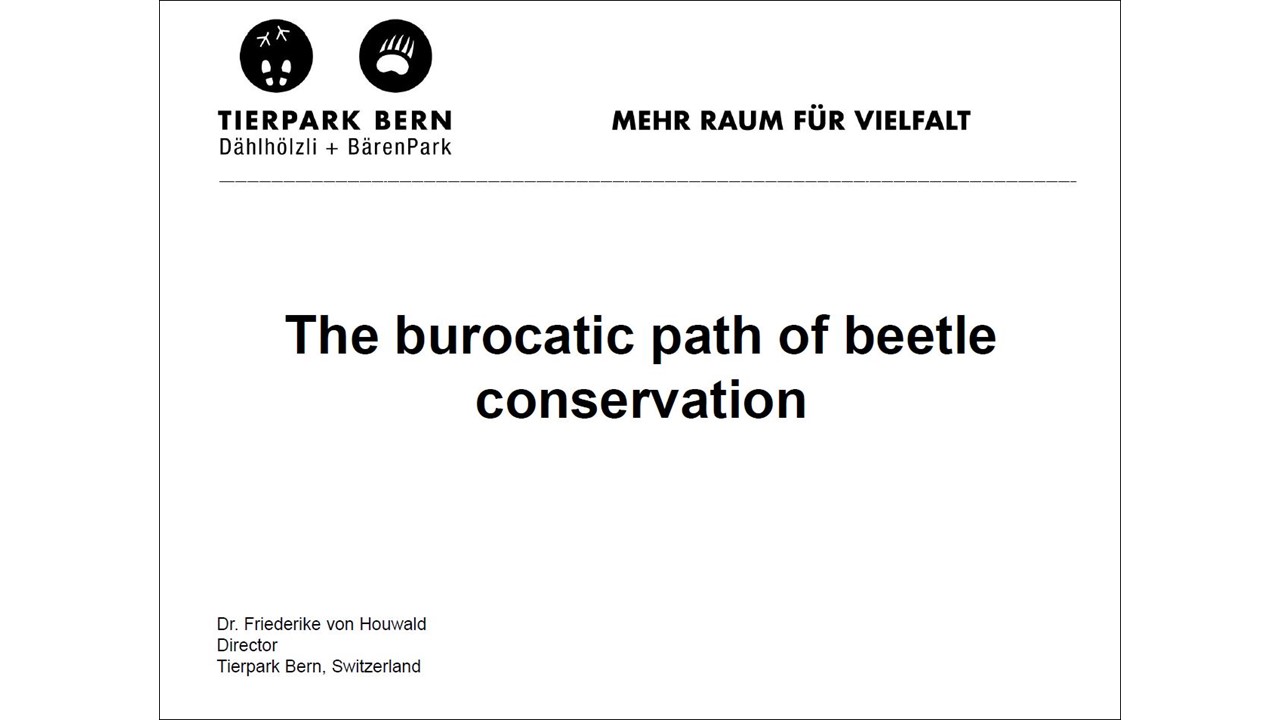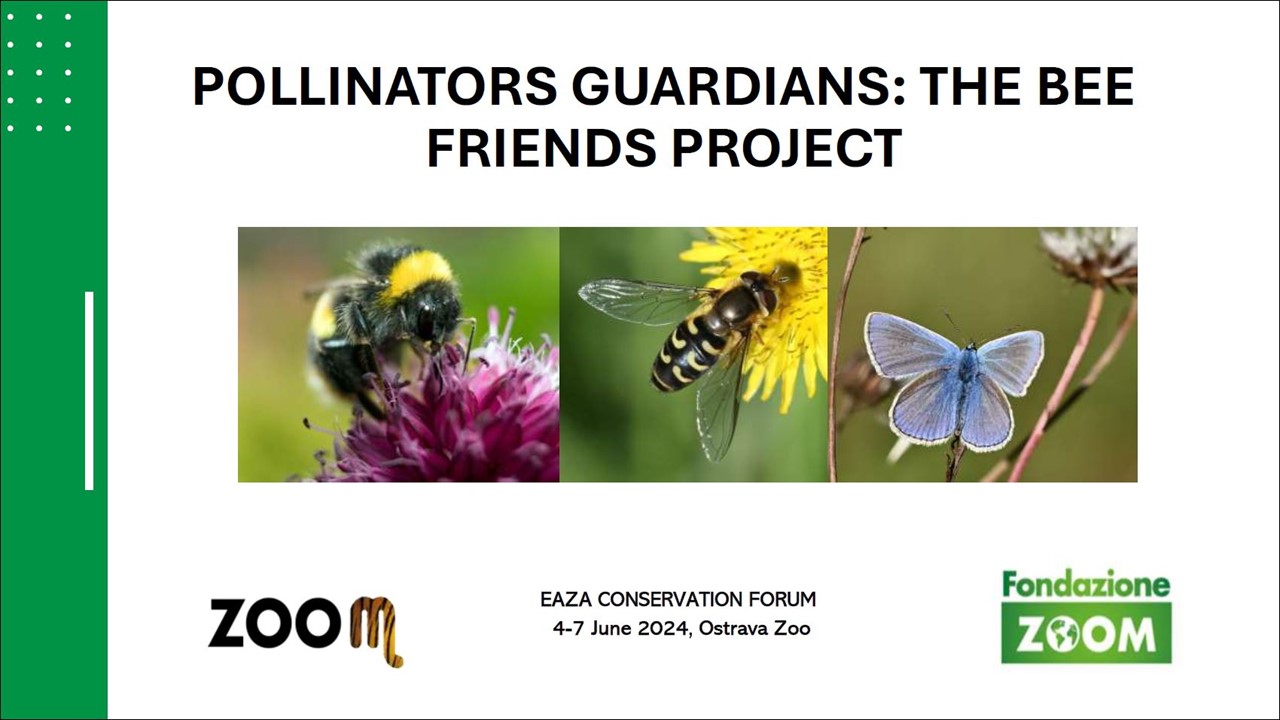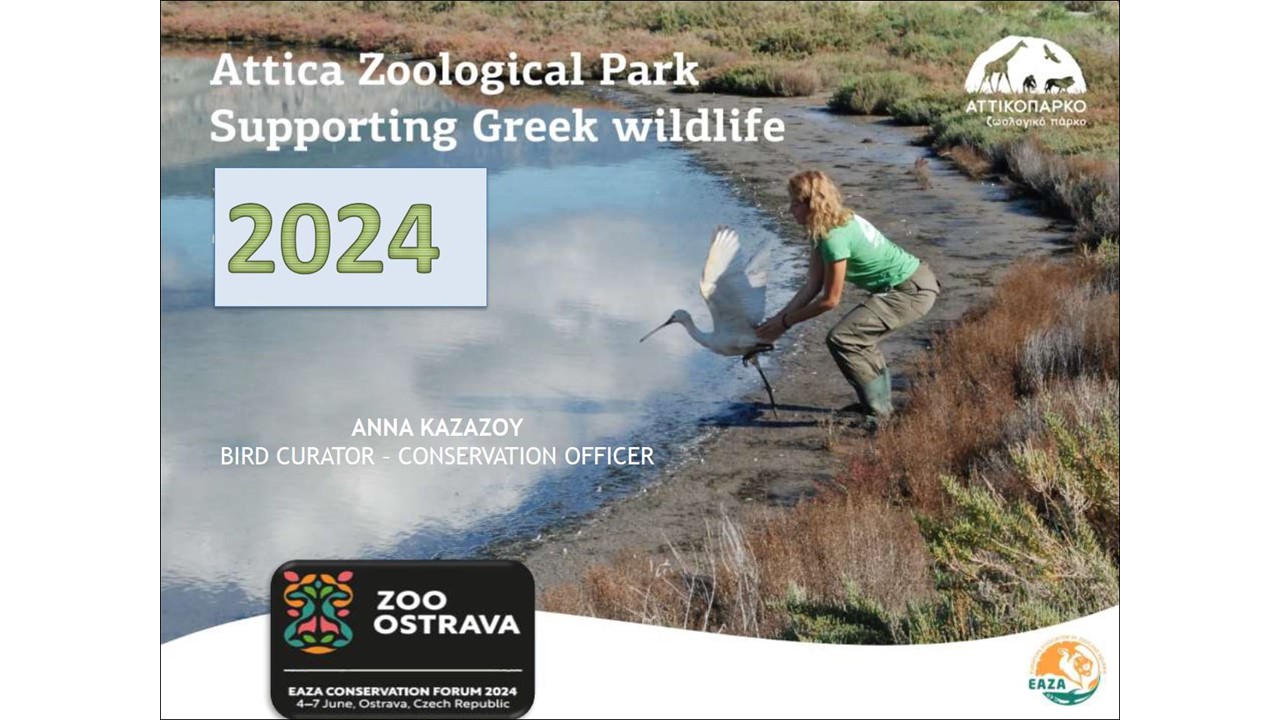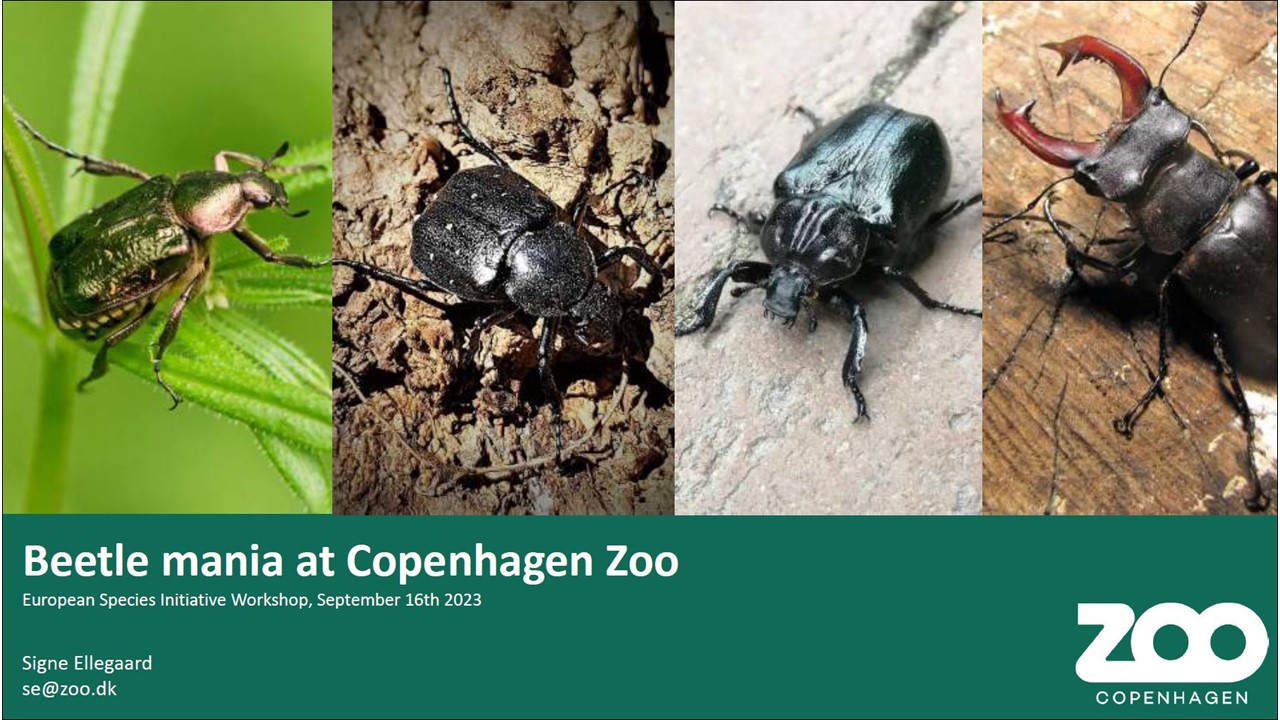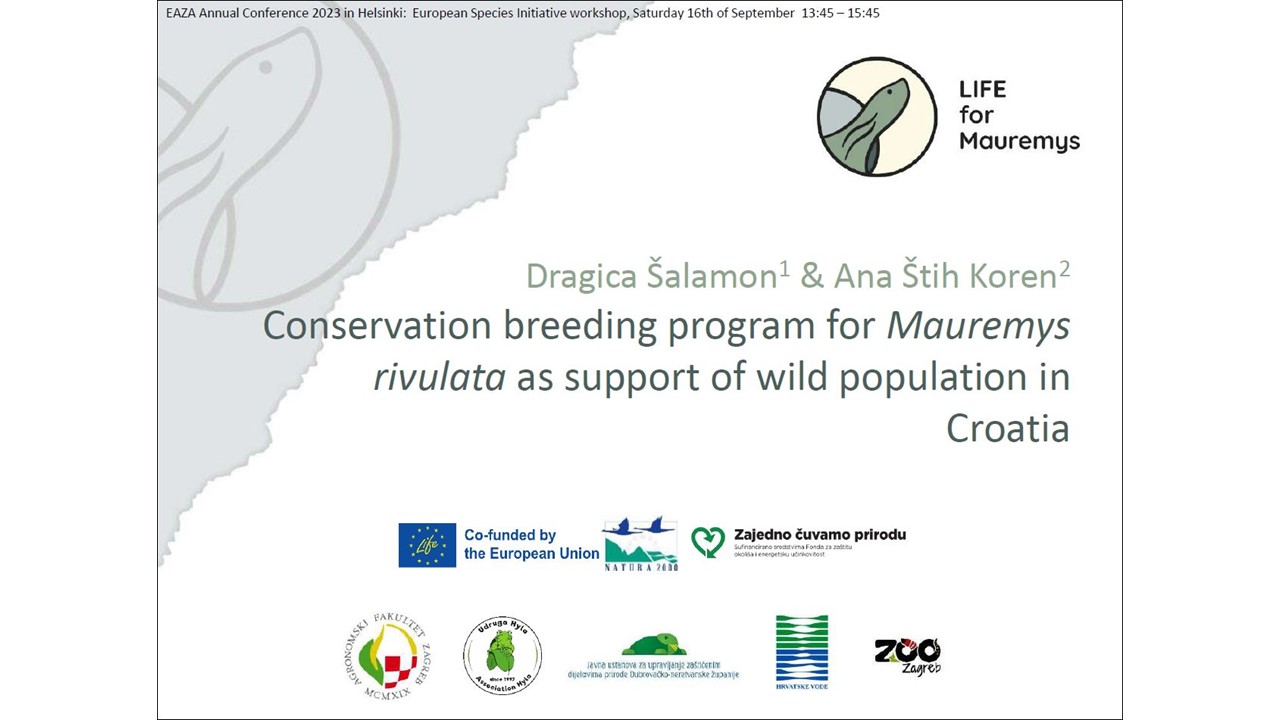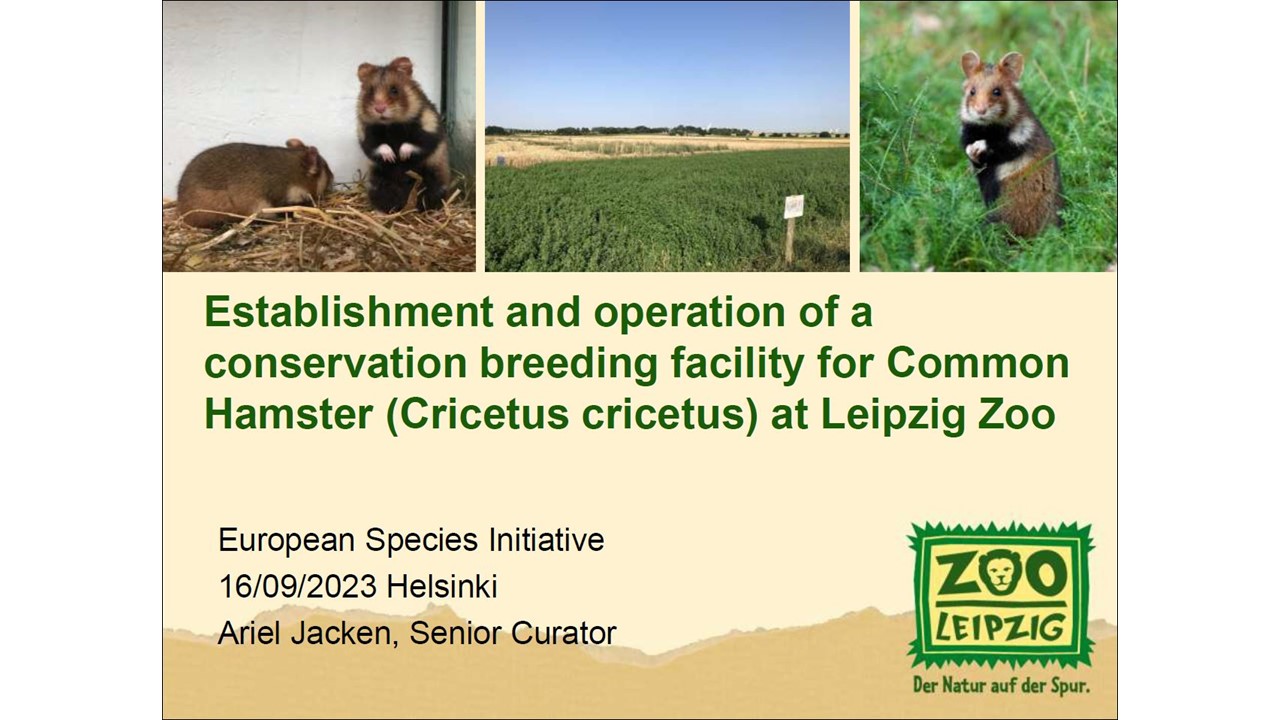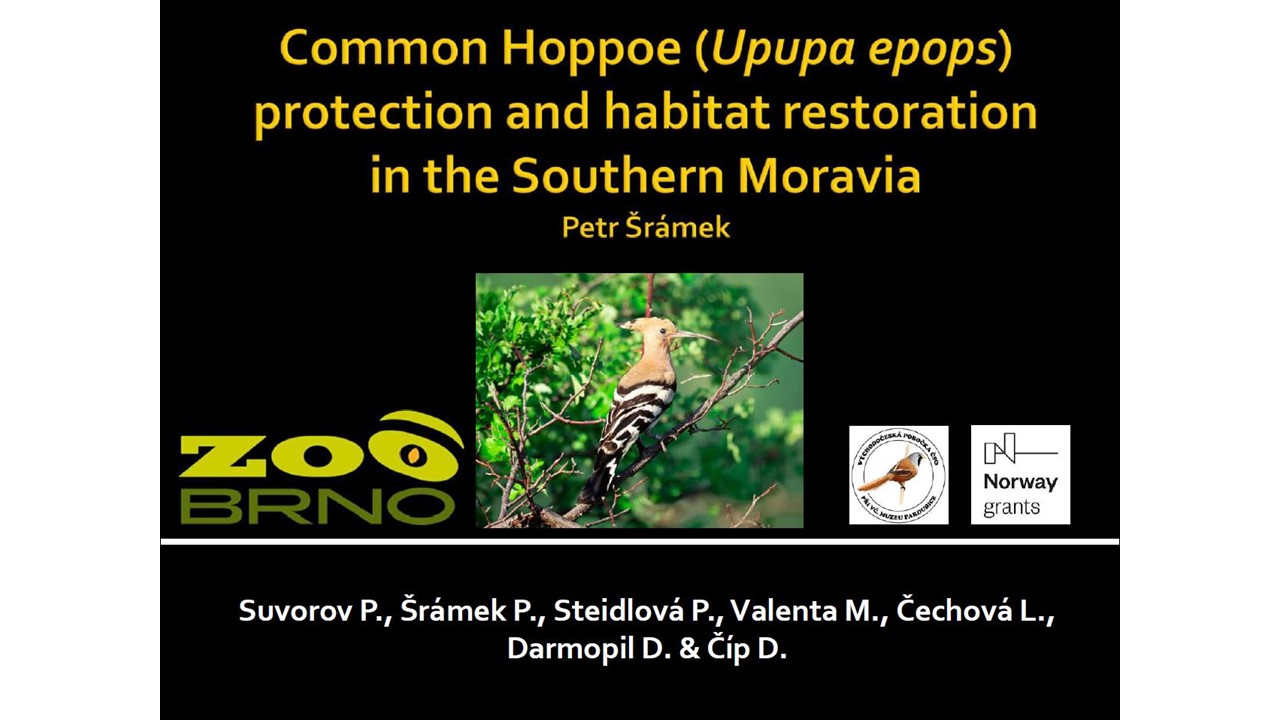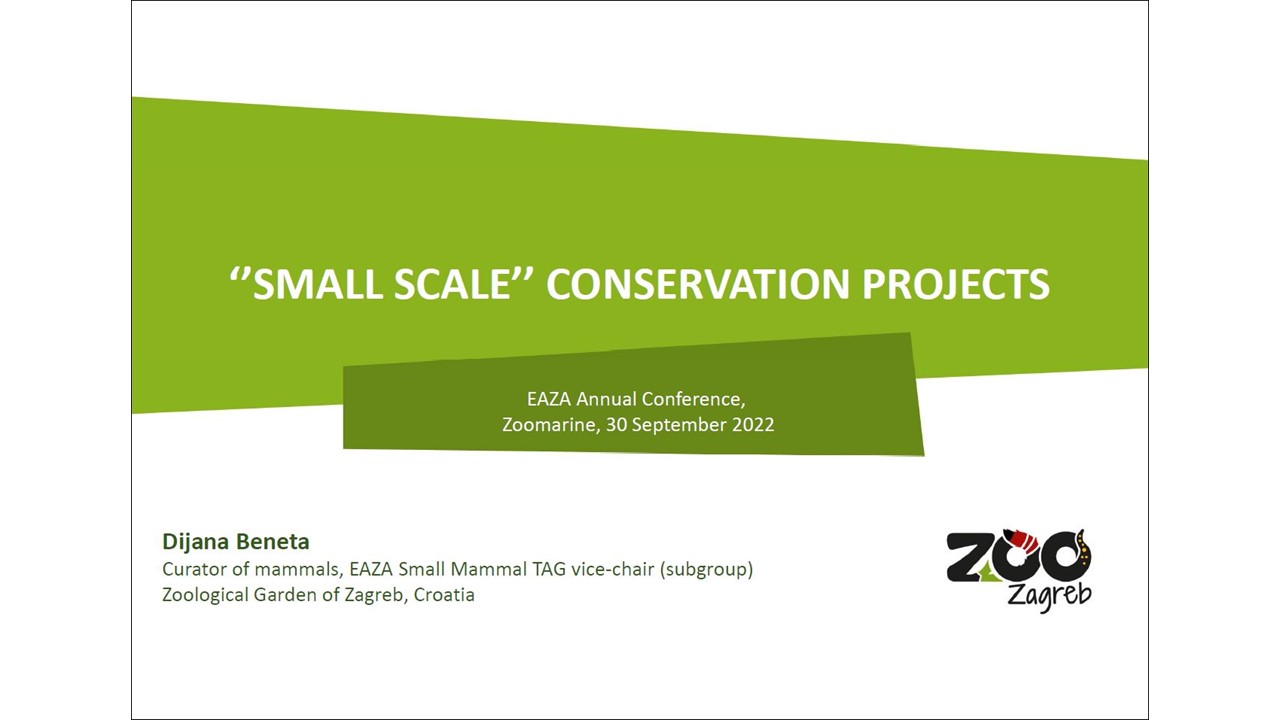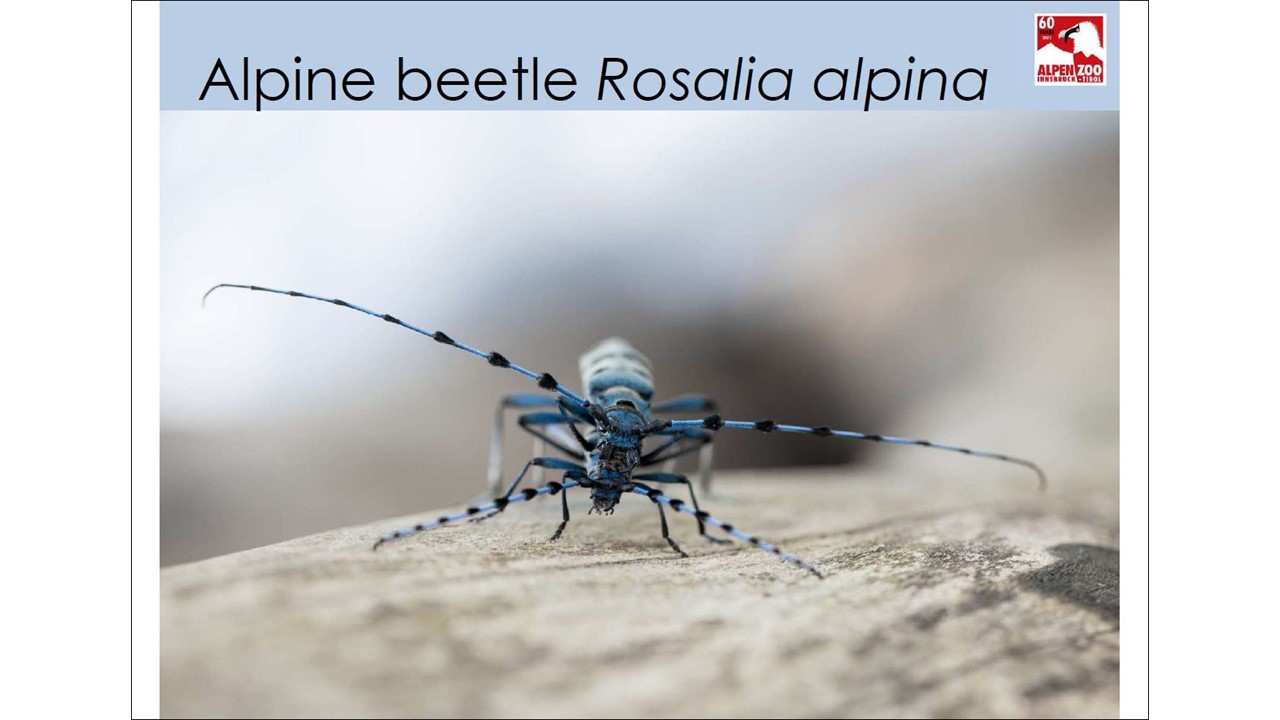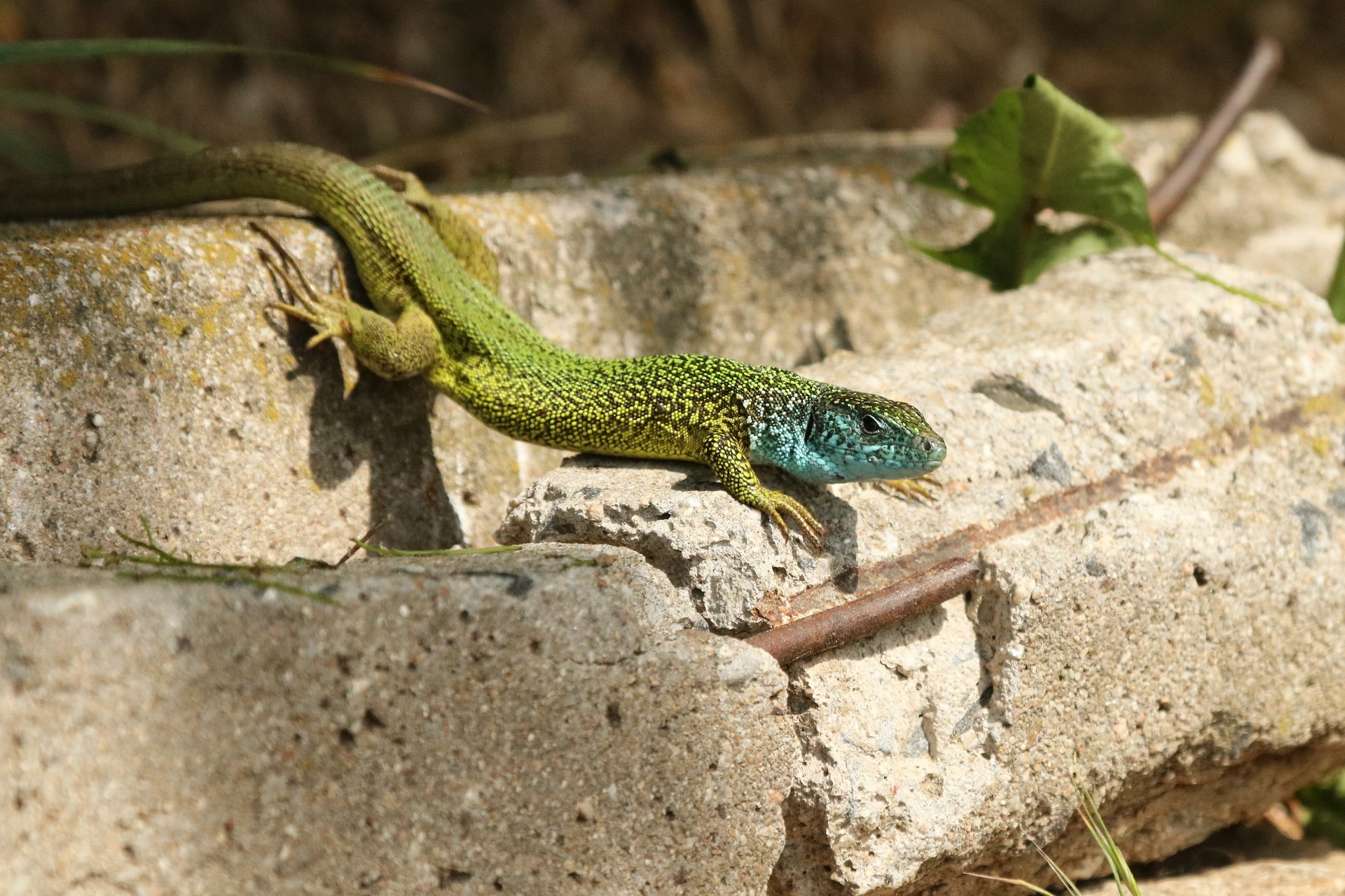
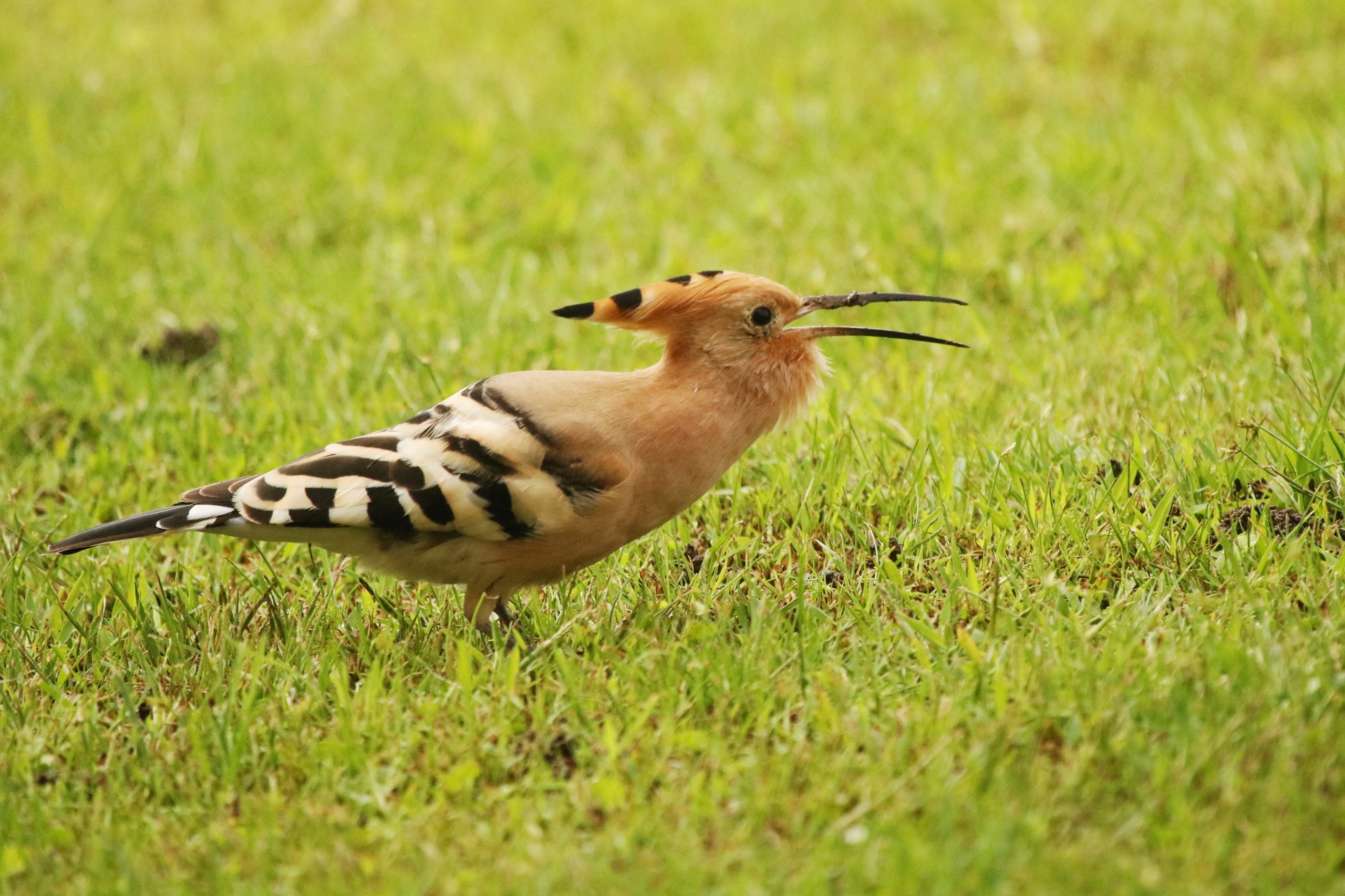
EAZA Annual conference, Lodz, September 2025 (DOWNLOAD WORKSHOP MINUTES, DOWNLOAD WORKSHOP OUTPUTS)
Dr. André Stadler & Laura Ganner (Alpenzoo Innsbruck) The Critically Endangered Bavarian pine vole: A case example of small mammal conservation using ex-situ and in-situ measures
This project presents an integrated conservation approach for the critically endangered Bavarian pine vole, combining ex situ breeding with in situ monitoring and habitat protection. Led by Alpenzoo Innsbruck, it includes research on species biology, international zoo collaboration, public engagement, and preparation for future reintroductions, demonstrating how small mammal conservation can be scaled from emergency measures to long-term recovery.
Sonja Mandić (Palić Zoo) Palic Zoo – EU Funding Experience
Palić Zoo shares long-term experience with EU-funded projects, with a focus on Interreg and IPA cross-border cooperation. Through partnerships with zoos in Hungary and Croatia, the zoo has improved animal welfare, developed educational and rescue facilities, and engaged local communities. The contribution highlights practical lessons, challenges, and success factors relevant for zoos planning conservation, education, or infrastructure projects.
Dalila Frasson (Immersive Parks) ZOO LIFE POLLINATORS
ZOO LIFE Pollinators is an EU LIFE project that positions zoos as active hubs for pollinator conservation, habitat restoration, research, and public engagement. Implemented across several European countries, the project develops standardised monitoring tools, restores pollinator-friendly habitats, builds zoo staff capacity, and engages citizens through education and citizen science, contributing directly to EU biodiversity and nature restoration goals.
Alice Albertini (EAZA) Building coalitions for conservation in tough times
Building coalitions is increasingly essential for conservation in a changing EU policy and funding landscape. This contribution highlights how partnerships, strategic communication, and cross-sector collaboration can help maintain strong biodiversity ambitions despite regulatory uncertainty and political pressure. Drawing on current EU developments and EAZA initiatives, it outlines practical ways to sustain conservation impact and engage broader public and political support.
EAZA Annual conference, Leipzig, October 2024 (DOWNLOAD WORKSHOP MINUTES)
Dobri Borislavov (Sofia zoo) – The involvement of Sofia Zoo in conservation efforts
Sofia Zoo plays an active role in wildlife conservation through education, research, and partnerships with NGOs. Its Environmental Education and Research Centre leads awareness campaigns and supports projects for endangered species. The zoo contributes to reintroduction efforts, such as releasing zoo-born Lesser Kestrels, and supports LIFE projects like “Bright Future for the Black Vulture” and “Egyptian Vulture New LIFE,” promoting biodiversity and inspiring conservation awareness.
Karoline Albig (Zoo Halle) – From Zero to Hero? Zoo Halle – Our steps towards an institutional conservation strategy
Zoo Halle is developing a comprehensive conservation strategy focused on structured planning, clear goals, and effective project support. Inspired by EAZA and IUCN guidelines, they created a Conservation Masterplan covering species and project selection, in-house standards, and monitoring. Through the Zoo€uro initiative, they raise funds and support impactful in-situ efforts, aiming to ensure long-term conservation success while engaging visitors, staff, and stakeholders.
Exercise 1: Zoologists vs. Directors
This interactive session explored differing perspectives on zoo-based conservation. Zoologists pitched new conservation projects, emphasizing biodiversity, education, and institutional benefits. Directors identified practical challenges like funding, staffing, and alignment with strategic goals. The exercise highlighted the importance of internal communication, strategic planning, and creative problem-solving to successfully implement and sustain meaningful conservation initiatives in zoos and aquaria.
Exercise 2: Scenario-Based Prioritization
Participants worked in groups to prioritize species in fictional scenarios, balancing conservation needs, feasibility, public appeal, and institutional fit. Each team defended their decisions, reflecting real-world trade-offs such as local vs. international impact, breeding success vs. reintroduction potential, and visibility vs. ecological urgency. The exercise promoted critical thinking and helped refine strategies for informed, value-driven species conservation planning.
EAZA Conservation Forum, Ostrava, June 2024 (DOWNLOAD WORKSHOP MINUTES)
Alessandro Di Marzio (Riga Zoo) Riga Zoo Native Amphibian Conservation Project
This project focuses on conserving native amphibians in Latvia, particularly Hyla orientalis and Epidalea calamita. Key activities include monitoring, genetic surveys, population supplementation, and international collaboration. Supported by partnerships with the Nature Conservation Agency and the University of Latvia, the project also aims to secure LIFE funding to further conservation efforts.
Friederike von Houwald (Tierpark Bern) – The Bureaucratic Path of Beetle Conservation
This project aims to conserve beetle species in Switzerland through breeding programs for stag, beetles, rhinoceros beetles and rose beetles. Emphasizing collaboration, it aligns with the City of Bern’s biodiversity concept. The project involves extensive networking, education, and political engagement, encouraging public fascination and support for beetle conservation, and integrating efforts into local biodiversity strategies.
Valentina Isaja (Fondazione Zoom) – Pollinators Guardians: The Bee Friends Project
This project aims to restore 15,000 m² of degraded land to support pollinators in urban and peri-urban areas. Goals include increasing local pollinator populations, conducting research, and engaging the community through education. Activities involve reintroducing native plants, creating nesting sites, reducing meadow mowing, and partnering with universities, schools, and local organizations to promote pollinator-friendly practices.
Anna Kazazou (Attica Zoological Park) – Mediterranean Monk Seal Project
This project focuses on the rescue and rehabilitation of Mediterranean monk seals in Greece. In collaboration, Pelargos Natura and Mom (First Aid Station for the Mediterranean Monk Seal), the zoo provides facilities, veterinary care, financial support, and expertise. The initiative aims to enhance conservation efforts, build stronger partnerships, and communicate success stories to inspire staff and visitors, fostering conservation optimism.
EAZA Annual conference, Helsinki, September 2023 (DOWNLOAD WORKSHOP MINUTES)
Signe Ellegaard (Copenhagen Zoo) – Beetle-mania at Copenhagen Zoo
The Beetle-mania project at Copenhagen Zoo addresses the conservation needs of saproxylic beetles, threatened by modern forestry practices. The project focuses on species like the Variable chafer, Hermit beetle, and Noble chafer. Efforts include conservation breeding, habitat restoration through managing veteran trees as well as securing foraging areas, monitoring populations and educating the public. The goal is to reinforce existing populations and reintroduce these beetles to suitable habitats.
Dragica Šalamon (University of Zagreb, Faculty of Agriculture) – Conservation Breeding Program for Mauremys rivulata in Croatia
This project aims to support the wild population of the Balkan terrapin by addressing key ecological knowledge gaps and threats. Funded by LIFE program, the initiative focuses on habitat quality improvement, ex-situ breeding programs, removal of invasive species, protection of nesting sites, and development of new fishing nets to reduce accidental bycatch. The project also works with landowners to reduce invasive agricultural practices.
Christiane Ariel Jacken (Zoo Leipzig) – Conservation Breeding Facility for Common Hamster at Leipzig Zoo
This project aims to prevent the extinction of the critically endangered Common Hamster by establishing a breeding facility at Leipzig Zoo. The rapid decline of this species is due to agricultural intensification, historical hunting, and environmental changes. Key efforts include breeding and releasing 100-150 hamsters annually over 5-10 years, with plans to reintroduce and establish new populations, thereby ensuring the species’ survival and connectivity between existing groups.
EAZA Annual conference, Albufeira, September 2022 (DOWNLOAD WORKSHOP MINUTES)
Petr Sramek (Brno Zoo) – Hoopoe and Habitat Management Project
This project focuses on the conservation of the Hoopoe in the Czech Republic by addressing critical issues such as the decline in meadow biodiversity due to agricultural changes and habitat loss. By creating artificial nesting sites and implementing sustainable habitat management practices, the project aims to benefit not only the Hoopoe but also a wide range of other threatened species sharing its habitat.
Dijana Beneta (Zagreb Zoo) – Red Squirrel Project
The Red Squirrel project led by Zagreb Zoo aims to reintroduce and support the population of Sciurus vulgaris in Zrinski’s Park, Čakovec. Through breeding and rehabilitation efforts at Zagreb Zoo, followed by strategic releases and community education initiatives, the project highlights the importance of local conservation efforts in bolstering global biodiversity.
Christiane Böhm (Alpenzoo Innsbruck) – Alpine Beetle Project
Collaborative efforts between Alpenzoo Innsbruck and Nordens Ark focus on conserving the Alpine longhorn beetle. Since 2019, the project has concentrated on developing large-scale breeding methods to reintroduce captive-bred beetles into their natural Alpine habitat in Austria, aiming to secure the future of this threatened species.

